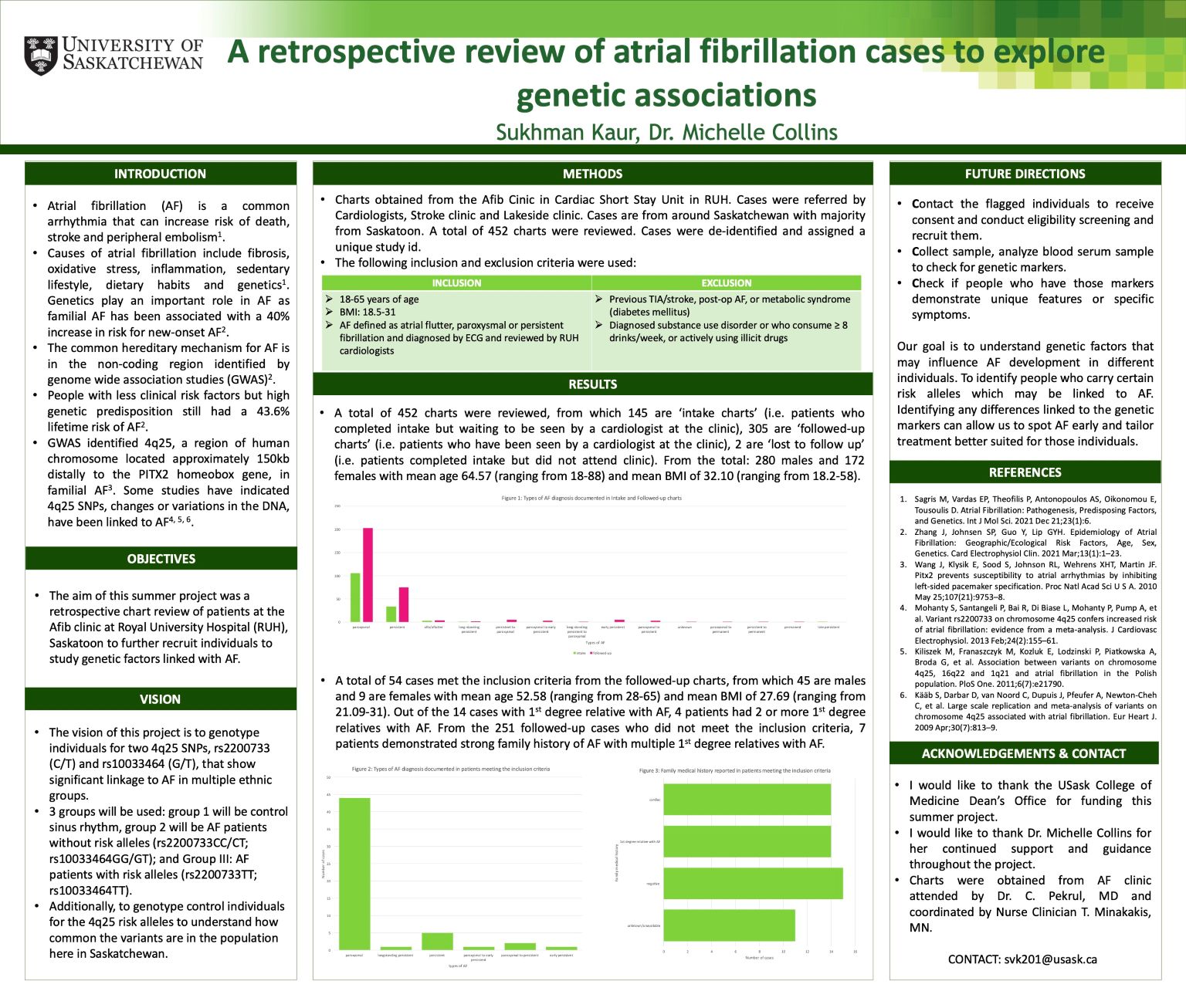
A retrospective review of atrial fibrillation cases to explore genetic associations
Sukhman Kaur
Atrial fibrillation (AF) is an arrythmia that can increase risk of certain health outcomes and may have a genetic cause amongst other causes. The project aimed to understand genetic factors that influence AF development in individuals. A retrospective chart review was conducted on 452 charts, that were de-identified, assigned a unique study id and screened through an inclusion and exclusion criteria. 54 eligible cases met the inclusion criteria from which: 45 males and 9 females with mean age 52.58 (ranging from 28-65) and mean BMI of 27.69 (ranging from 21.09-31), including 14 cases with 1st degree relative with AF (from which 4 patients had 2 or more 1st degree relatives with AF). From the cases who did not meet the inclusion criteria, 7 patients demonstrated strong family history of AF with multiple 1st degree relatives with AF. Types of AF documented in the cases were also identified. The future direction is to contact, consent and recruit individuals to collect blood serum samples to identify genetic markers. The vision is to be able to identify people who carry certain risk alleles that may be linked to AF which can help identify AF early and tailor treatment better suited for those individuals.
